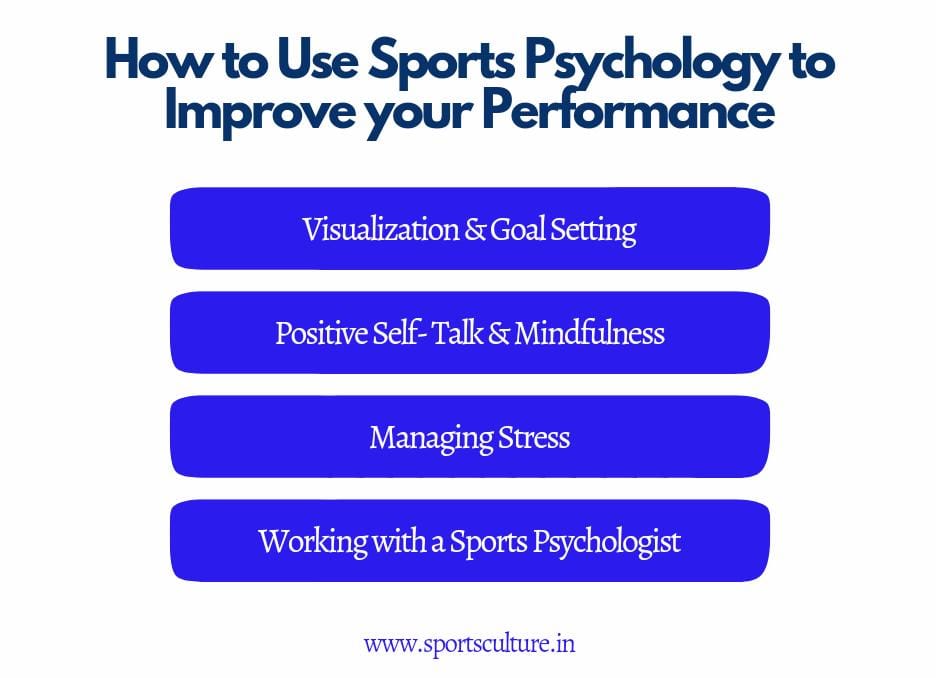Sports Psychology for Athletes
Why Sports Psychology is Important?

As an athlete, you know that sports are not just about physical prowess, but also mental strength. In fact, sports psychology has become increasingly important for athletes in recent years, as it can make the difference between winning and losing. In this article, we will explore the importance of sports psychology for athletes and how it can help you unlock your true potential.
What is Sports Psychology?
Sports psychology is the study of how psychological factors affect performance in sports, exercise, and physical activity. It explores the mental aspects of sports, such as motivation, confidence, focus, and the impact of stress on athletes. The goal of sports psychology is to help athletes achieve optimal performance by addressing the mental and emotional factors that impact their performance. Which is vital for team sports like Cricket, Football etc.
Importance of Sports Psychology for Athletes
Sports psychology is essential for athletes because it helps them understand the impact of their mental state on their performance. It also helps athletes develop mental skills that can improve their performance and lead to success. Here are some of the ways in which sports psychology for athletes can be important:
Improves Mental Toughness: Mental toughness is the ability to stay focused, motivated, and resilient in the face of adversity. Sports psychology can help athletes develop the mental skills required to overcome obstacles and push through difficult situations.
Enhances Performance: Sports psychology can help athletes improve their focus, concentration, and motivation, which are all critical factors in achieving optimal performance. It can also help athletes manage their stress and anxiety, which can improve their overall performance.
Boosts Confidence: Confidence is a crucial factor in sports performance. Sports psychology can help athletes build their confidence by teaching them how to manage negative self-talk and develop a positive mindset.
Improves Communication: Sports psychology can also help athletes improve their communication skills, which are essential in team sports. Effective communication can help athletes work together more effectively and improve their overall performance. Which in exchange creates a positive sports culture around the world.
How Can Athletes Use Sports Psychology to Improve Their Performance?

Now that we understand the importance of sports psychology for athletes, let’s look at some ways in which athletes can use it to improve their performance.
Visualization: Visualization is a powerful mental technique that can help athletes improve their performance, specially in e-sports these days. By imagining themselves performing at their best, athletes can increase their confidence and focus, leading to better performance.
Goal-Setting: Goal-setting is an important aspect of sports psychology for athletes. By setting specific, measurable, and achievable goals, athletes can stay focused and motivated. Goal-setting can also help athletes track their progress and stay on track.
Positive Self-Talk: Negative self-talk can be detrimental to an athlete’s performance. Sports psychology can help athletes develop positive self-talk, which can improve their confidence and motivation.
Mindfulness: Mindfulness is the practice of being present and fully engaged in the moment. It can help athletes stay focused and calm under pressure, leading to better performance.
Managing Stress: Stress is a common factor in sports, and it can have a significant impact on an athlete’s performance. Sports psychology can help athletes manage their stress by teaching them relaxation techniques and coping strategies.
Working with a Sports Psychologist: Finally, working with a sports psychologist can be an effective way to improve an athlete’s mental skills. A sports psychologist can help athletes identify areas for improvement, develop mental skills, and manage their emotions.

In conclusion, sports psychology is an essential aspect of sports performance. By understanding the impact of their mental state on their performance and developing mental skills, athletes can improve their focus, concentration, and motivation, leading to better overall performance. So if you want to unlock your true potential as an athlete, consider incorporating sports psychology for athletes into your training regimen.


